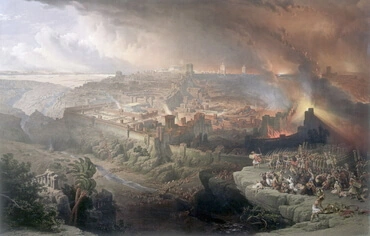1
ثم صار قول الرب الى يونان ثانية قائلا
2
قم اذهب الى نينوى المدينة العظيمة وناد لها المناداة التي انا مكلّمك بها
3
فقام يونان وذهب الى نينوى بحسب قول الرب. اما نينوى فكانت مدينة عظيمة للّه مسيرة ثلاثة ايام.
4
فابتدأ يونان يدخل المدينة مسيرة يوم واحد ونادى وقال بعد اربعين يوما تنقلب نينوى
5
فآمن اهل نينوى بالله ونادوا بصوم ولبسوا مسوحا من كبيرهم الى صغيرهم.
6
وبلغ الأمر ملك نينوى فقام عن كرسيه وخلع رداءه عنه وتغطى بمسح وجلس على الرماد
7
ونودي وقيل في نينوى عن امر الملك وعظمائه قائلا لا تذق الناس ولا البهائم ولا البقر ولا الغنم شيئا. لا ترع ولا تشرب ماء.
8
وليتغط بمسوح الناس والبهائم ويصرخوا الى الله بشدة ويرجعوا كل واحد عن طريقه الرديئة وعن الظلم الذي في ايديهم.
9
لعل الله يعود ويندم ويرجع عن حمو غضبه فلا نهلك
10
فلما رأى الله اعمالهم انهم رجعوا عن طريقهم الرديئة ندم الله على الشر الذي تكلم ان يصنعه بهم فلم يصنعه







